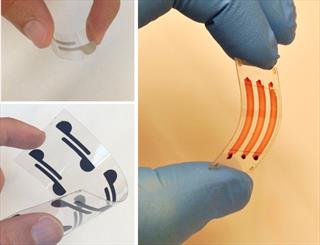Hadi Shafiee, Iranian Ph.D., instructor in medicine at the Division of Biomedical Engineering at Brigham and Women's Hospital, Harvard Medical School along with other researches at Florida Atlantic University and Stanford University have published their findings in Nature Scientific Reports in an article titled “Paper and Flexible Substrates as Materials for Biosensing Platforms to Detect Multiple Biotargets.”
In this article, they have identified a new biosensing platform that could be used to remotely detect and determine treatment options for HIV, E-coli, Staphylococcus aureas and other bacteria. Using a drop of blood from a fingerprick, this novel biosensing platform provides clinically relevant specificity, sensitivity and detection of pathogens from whole blood and plasma.
Using this technology, they also have developed a smartphone app that could detect bacteria and disease in the blood using images from a cellphone that could easily be analyzed from anywhere in the world.
Using paper and flexible substrates as materials for biosensors, Shafiee and his colleagues have identified a new rapid and cost-effective way to diagnose diseases and monitor treatment in point-of-care settings. They have been able to show how their new platforms are uniquely able to isolate and detect multiple biotargets selectively, sensitively, and repeatedly from diverse biological mediums using antibodies.
The results identified by this platform can be sent to every corner in the world through cell phones and their communication systems.
Dr. Shafiee and his colleagues have expressed hope that this new technology will soon be widely used to improve heath throughout the world.
MS
MNA
END
2525919

























Your Comment